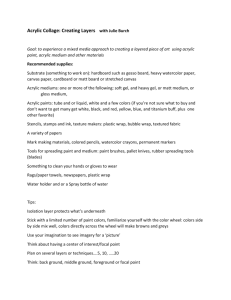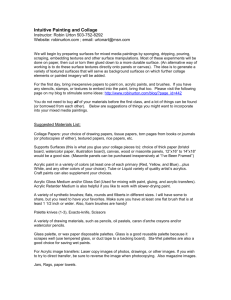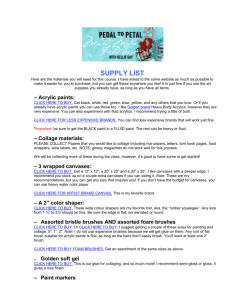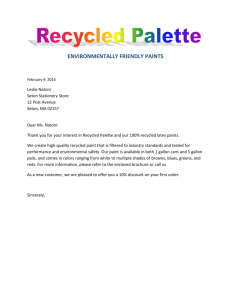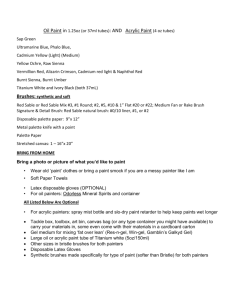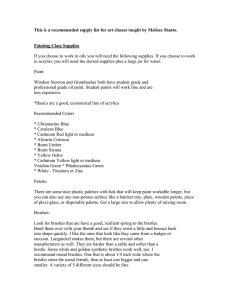Color Project I
advertisement
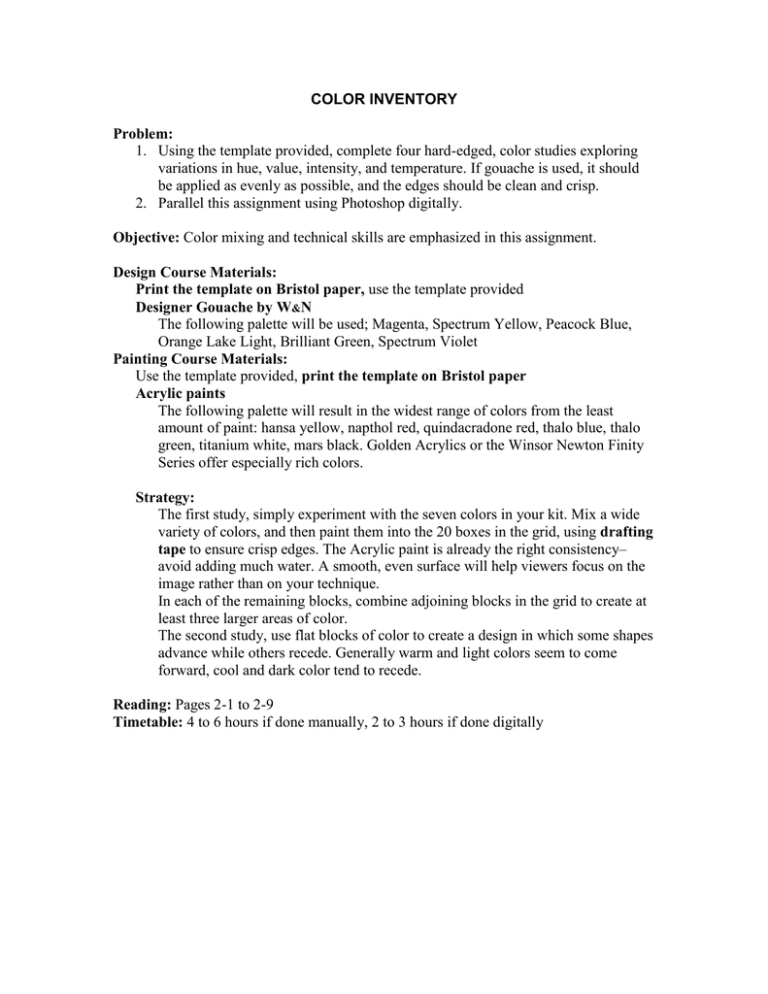
COLOR INVENTORY Problem: 1. Using the template provided, complete four hard-edged, color studies exploring variations in hue, value, intensity, and temperature. If gouache is used, it should be applied as evenly as possible, and the edges should be clean and crisp. 2. Parallel this assignment using Photoshop digitally. Objective: Color mixing and technical skills are emphasized in this assignment. Design Course Materials: Print the template on Bristol paper, use the template provided Designer Gouache by W&N The following palette will be used; Magenta, Spectrum Yellow, Peacock Blue, Orange Lake Light, Brilliant Green, Spectrum Violet Painting Course Materials: Use the template provided, print the template on Bristol paper Acrylic paints The following palette will result in the widest range of colors from the least amount of paint: hansa yellow, napthol red, quindacradone red, thalo blue, thalo green, titanium white, mars black. Golden Acrylics or the Winsor Newton Finity Series offer especially rich colors. Strategy: The first study, simply experiment with the seven colors in your kit. Mix a wide variety of colors, and then paint them into the 20 boxes in the grid, using drafting tape to ensure crisp edges. The Acrylic paint is already the right consistency– avoid adding much water. A smooth, even surface will help viewers focus on the image rather than on your technique. In each of the remaining blocks, combine adjoining blocks in the grid to create at least three larger areas of color. The second study, use flat blocks of color to create a design in which some shapes advance while others recede. Generally warm and light colors seem to come forward, cool and dark color tend to recede. Reading: Pages 2-1 to 2-9 Timetable: 4 to 6 hours if done manually, 2 to 3 hours if done digitally COLOR INVENTORY Instructor’s Notes: The four basic qualities of color are hue, value, intensity (or saturation), and temperature. Variations in any of these aspects of color substantially affect design impact. I will give an explicit demonstration of paint mixing, drafting tape technique, and cleanup. W&N Designer's Gouache. Gouache is water soluble, yet may be difficult to reconstitute from dry. To avoid having paint dry on the palette, we will use a palette with small air-tight containers, called "Seala-palette" available at Daniel Smith art supply Acrylic Paints When using acrylic paints, place a damp paper towel under the blobs of pure color. A glass palette is useful because students can usually scrape off most of the paint with a palette knife, then complete their cleanup using a damp paper towel. Cleaning this way avoids a traffic jam at the sink and reduces the chances of clogging the drain. . Conversation is the laboratory and workshop of the student. -Ralph Waldo Emerson
